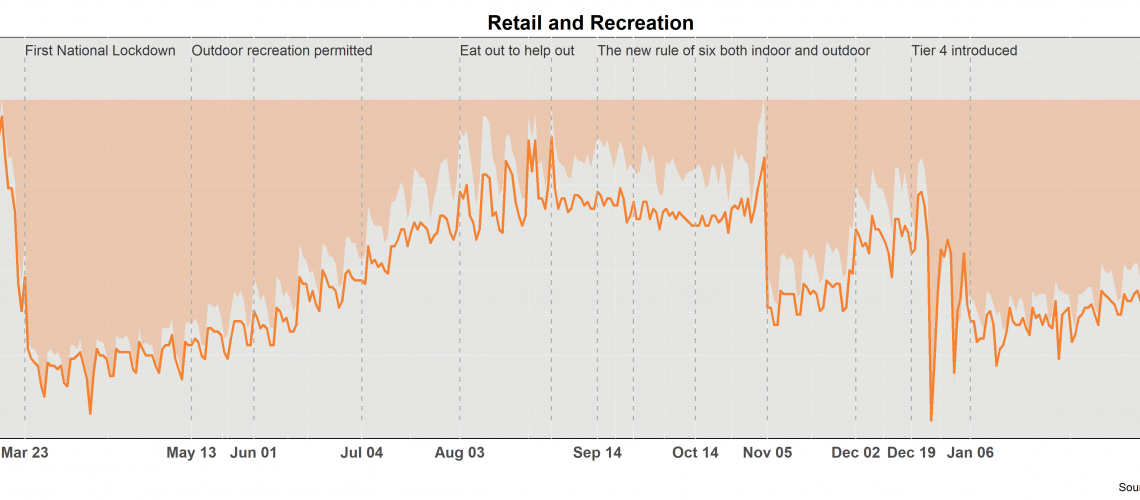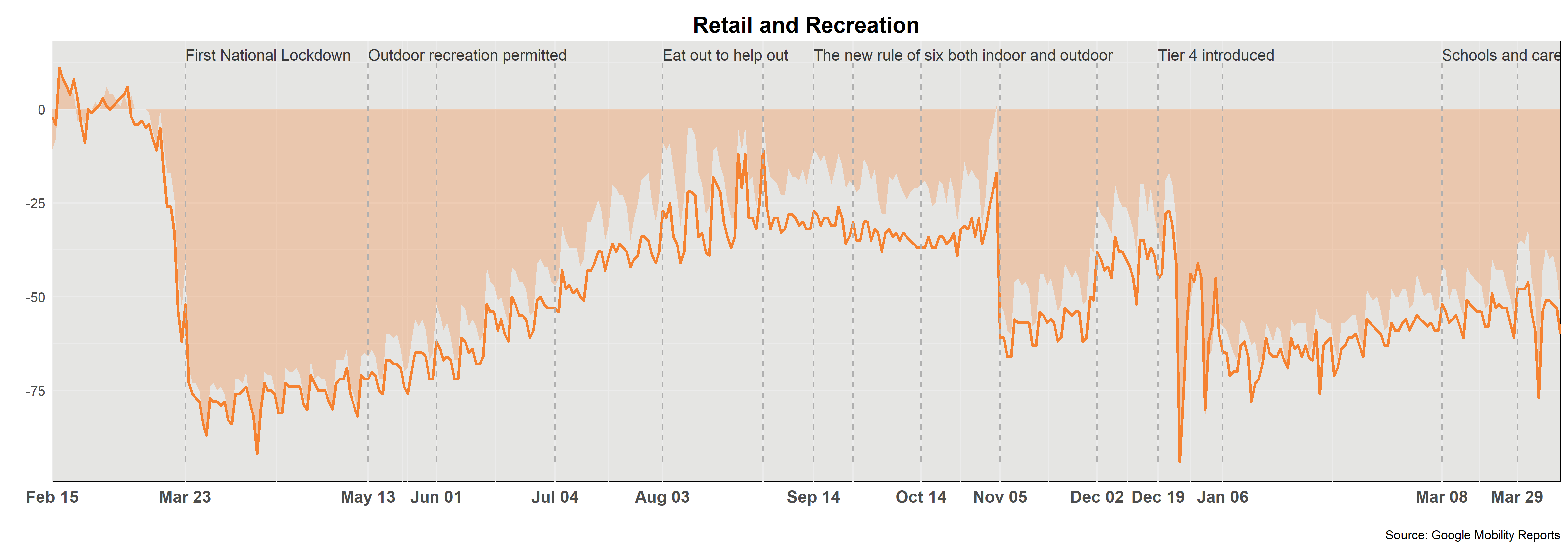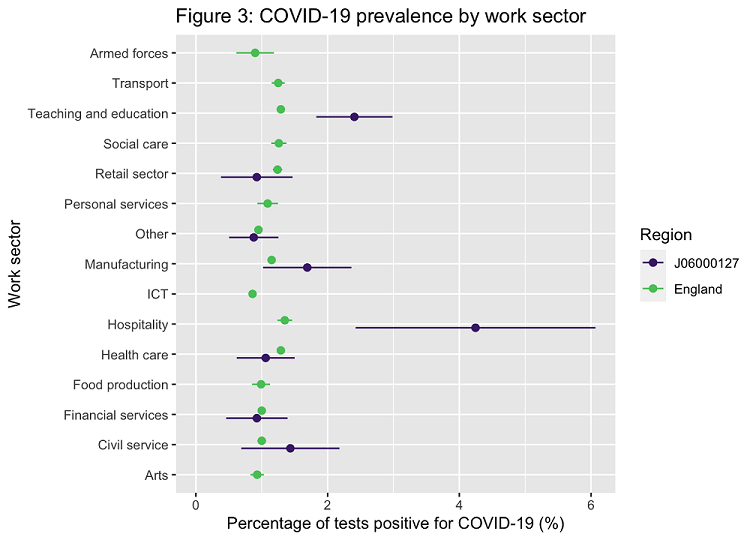You are here
Local Data Spaces: Supporting Local Authority Covid-19 Response

Covid-19 has strained already insufficient Local Authorities resources, with infection and transmission of Covid-19 further exacerbating existing social inequalities. Four CDRC academic researchers have been working for the past 6 months using the Office for National Statistics Secured Research Service (ONS SRS) on the Local Data Spaces project, and we asked Dr Jacob Macdonald and Simon Leech to explain the focus of this work.
What is the Local Data Spaces Project?
The Local Data Spaces (LDS) was a novel collaboration between the Joint Biosecurity Centre (JBC), the Office for National Statistics (ONS), and ADR UK. This project was set up to support local authorities, groups and stakeholders respond to the COVID-19 pandemic using granular and secured data and research driven analyses. The ADR UK funded research team undertook the secure accreditation (ONS Accredited Researcher) process to access the catalogue of granular, line level, administrative and survey datasets within the Office for National Statistics (ONS) Secure Research Service (SRS).
During the six-month project our research team engaged with 25 local authorities in a host of initial meetings alongside the JBC to better understand local priorities, contexts and research needs. Across these meetings, we identified two consistent core research priorities which focused on broader COVID-19 health impacts and inequalities, and on economic vulnerability and recovery potential. From this, we developed a series of nine reports leveraging the secured data available through the SRS infrastructure – and further replicable and generated consistently for all local authority regions across the country (and available as CDRC Geodata Packs).
 A key part of the project was engagement with local authorities, to understand their existing skill set and capacities to be able to provide the most useful outputs for them
A key part of the project was engagement with local authorities, to understand their existing skill set and capacities to be able to provide the most useful outputs for them
For each local area, a set of reports are built to profile the themes of:
- Demographic Inequalities in COVID-19;
- Ethnic Inequalities in COVID-19;
- Geospatial Inequalities in COVID-19;
- Excess Mortality;
- Occupational Inequalities;
- Population, Housing and Affordability;
- Social Economy;
- Industry Densities;
- Economic Vulnerabilities;
- and Human Mobility.
Importantly in the interest of scale economies and replicability, respective code and scripts (appropriately redacted where necessary) are hosted on the Local Data Spaces repository available through the CDRC Github platform.
What data did you use?
Our analyses leveraged the suite of highly detailed administrative and survey datasets held securely within the Office for National Statistics (ONS) Secure Research Service (SRS). This included core national data products such as NHS Test and Trace, the COVID-19 Infection Survey, The Business Structure Dataset (BSD) registry and the Business Registry and Employment Survey (BRES). Non-disclosive research work was conducted within the SRS environment, and generated into the series of reports for each area across England. These data sources were supplemented where relevant with openly available datasets such as the ONS Population Estimates, Google Mobility Data, and CDRC open data products such as the CDRC Business Census, and Access to Healthy Assets and Hazards (AHAH).
 One of the outputs in the reports, allowing used to compare changes in retail and recreation over time for the country (area) and their local authority (line).
One of the outputs in the reports, allowing used to compare changes in retail and recreation over time for the country (area) and their local authority (line).
What do the project outputs allow users to do that they couldn’t do before?
From our meetings with local stakeholders, it became clear the huge variation in resources available for research and analytical capacity, and that the Covid-19 pandemic has stretched resourcing within local authorities. Local authorities co-designing analyses alongside the research team ensured the reports generated were relevant and useful, and helped fill evidence gaps at local levels.
We created non-disclosive outputs from the ONS SRS packaged into a series of reports for each local authority district in England. These reports are available through the CDRC Geodata Packs platform for any local stakeholder to download. All R scripts, both for data cleaning and analyses are available for re-use by local authority analysts or local researchers in the future, enabling reproduction and even extension of the analyses. The openly-available (appropriately redacted where necessary) code and workflow pipelines used to clean and format these datasets and produce final reports provide a number of practical efficiencies. Where local analysts have limited resources or capabilities in accessing, working and analysing massive national studies and datasets, cleaned scripts and code to bypass the data wrangling stage can be invaluable when rapid-response research outputs are needed. Alongside this, we hope this may empower those local authorities with lower analytical capacity to be able to access granular data to inform local level evidence bases.

Another output from the data pack reports, allowing users to compare positive Covid-19 rates by work sector for England (green) and their area (purple).
These reports generated allow local authorities access to high-quality datasets that they may not have access to otherwise, or the analytical resources or time to undertake the work themselves. Ensuring that scaled, replicable and reproducible work is generated consistently for all local areas across the country is key for these rapid-response studies and research pieces – limiting the time-consuming data cleaning and wrangling process which may be non-trivial for many analysts and datasets. Through the series of reports for each local authority, we sought to paint a picture of the impacts of the pandemic, and also provide regional and national level comparisons where possible to highlight the relative local level impact. Local authorities are now quickly and succinctly able to uncover the relative local impact Covid-19 has had across a range of health, human mobility, and economic themes.
What about the future?
Initially, we hope to see the reports being used by local authorities and stakeholders, allowing them access to an evidence base of the impact of Covid-19 at a local level. This work showcases the possibility and framework that locally focused analyses can take within a secured research environment. The output reports and replicable code available to other accredited researchers within the SRS (and available appropriated disclosed external to the SRS) further provide incentives for local authorities to explore these avenues for their own local research priorities. Locally focused research and data is clearly in demand.